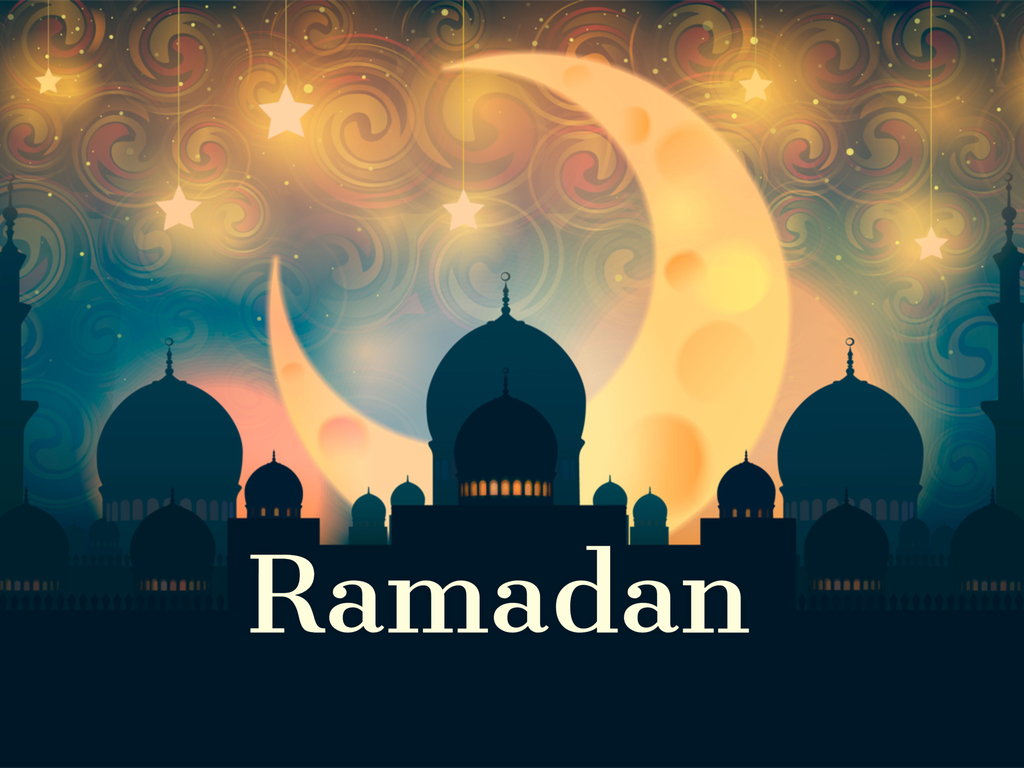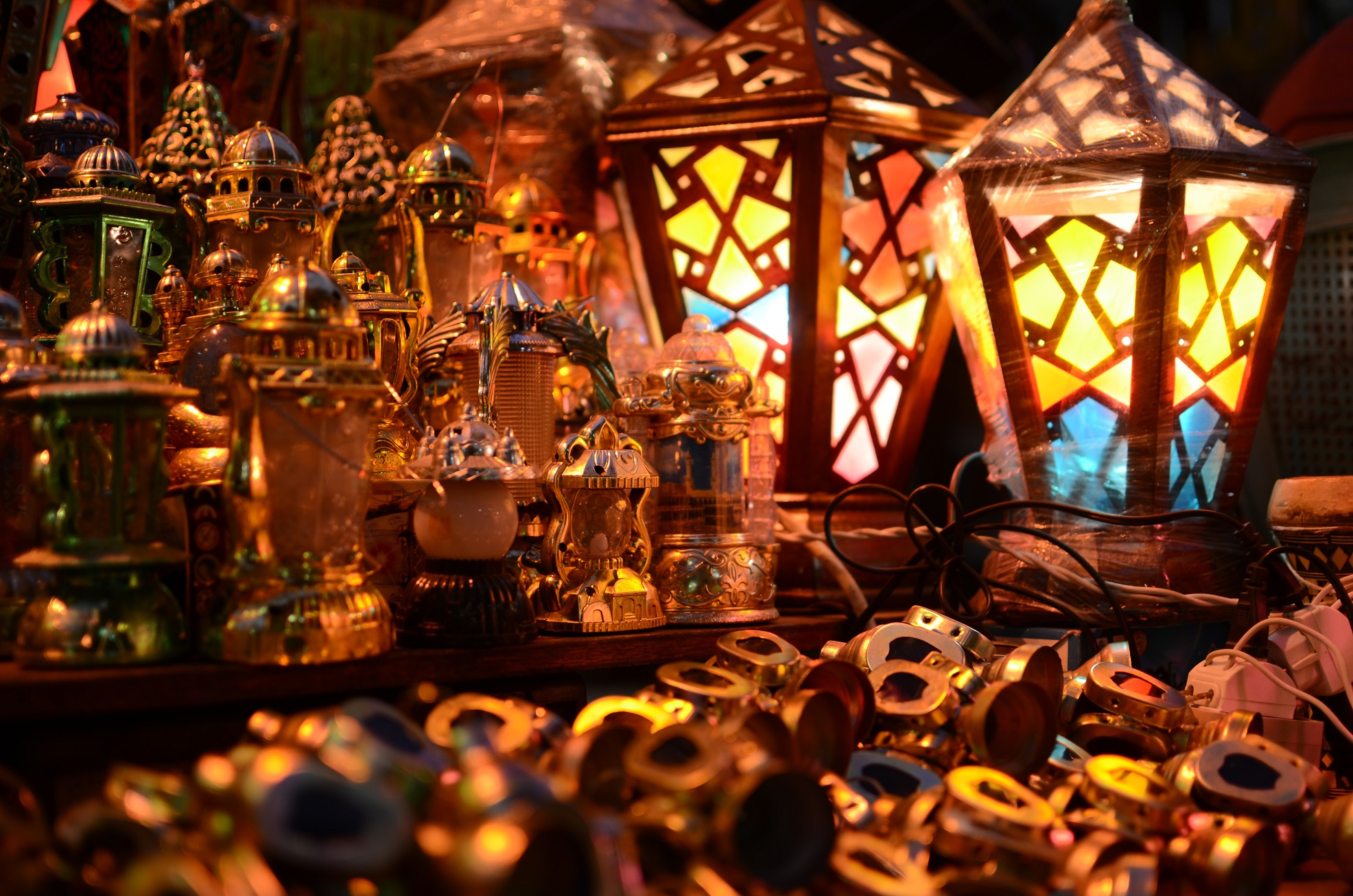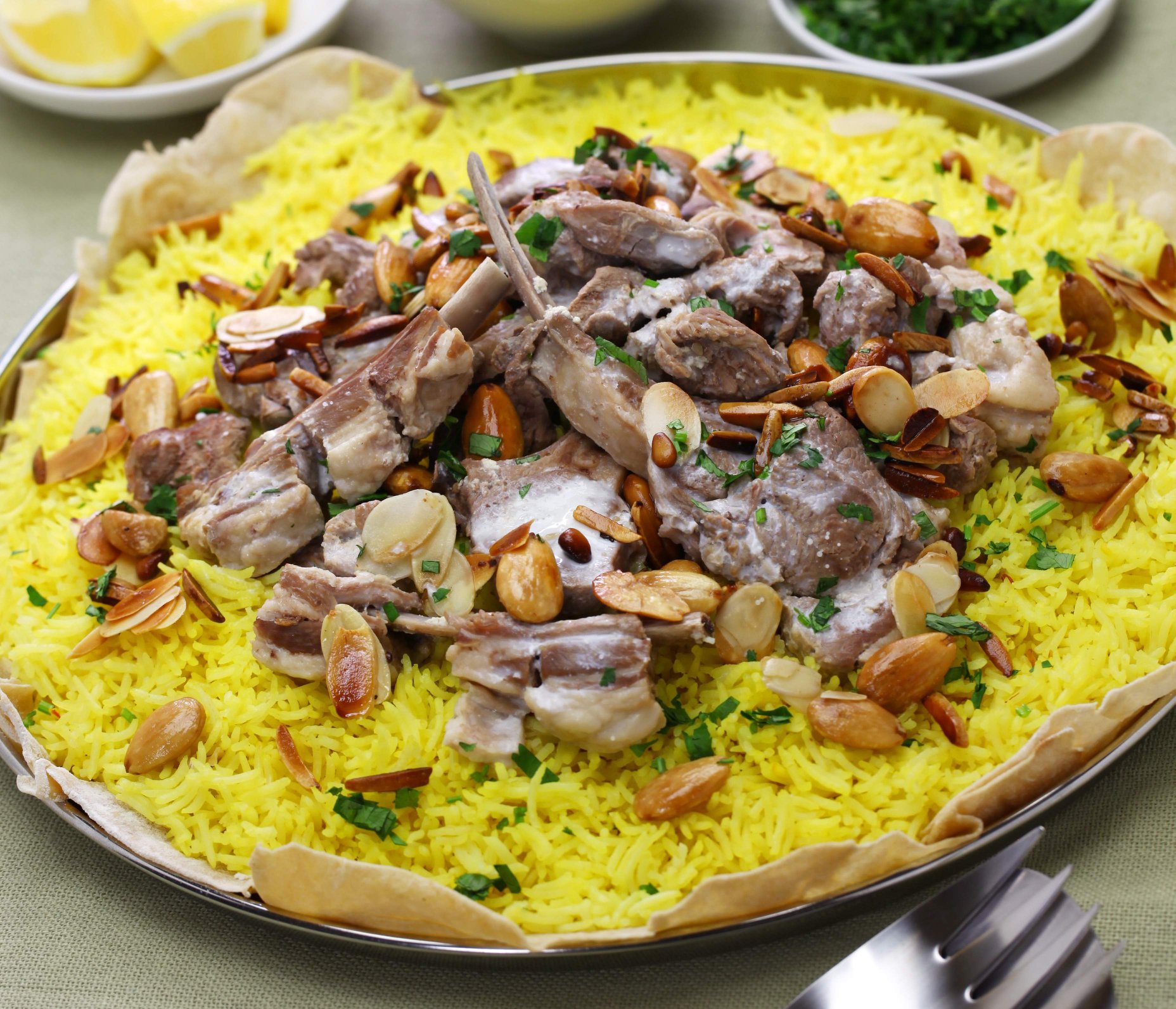
What is Ramadan ?

Ramadan is the ninth month of the Islamic calendar and is observed by Muslims worldwide as a month of fasting (sawm) to commemorate the first revelation of the Quran to Muhammad according to Islamic belief. This is a month of fasting, prayer, reflection and community. Muslims avoid eating nor drinking anything between sunrises until sunset, smoking and engaging in sexual relation. They are also instructed to refrain from sinful behaviors that may negate the reward of fasting such as false speech, fighting except in self-defense.
After the sunset, Muslims will have their “Iftar” which is their first meal “breakfast “of the day and this serves as a mini celebration for the families, where they get together and eat traditional delicious meals, snacks and desserts.

Traditional food during Ramadan
Appitizer
Muslims break their fast by eating first 1 or 3 dates and water. From a nutritional point of view, dates have important elements of iron, magnesium, natural sugar and fibres, it help refilling blood sugar after long day of fasting

Starter
Soup is much desired to start the iftar for Muslims, its good option to warm and prepare the stomach to receive other food. There are many types of soups that are served during Ramadan such as: vegetables, chicken, mushroom, Vermicelli and with Lentil soup being the most common one in Jordan.

Side Dish
Fattoush - is one of the essential dishes on Ramadan table, it is a combination of fresh vegetables with small pieces of baked bread on the top. Pomegranate, olive oil and lemon juice are used for the dressing.

Main Course
Mansaf - (white rice with cooked yogurt and meat), stuffed vegetables (Mehchi Koussa and stuffed vine leaves), Moulouhkiyeh, Maqlouba and many others – which provide a balance of all the elements of meat, chicken, fish and beans.

Dessert
A number of side dishes are also served during Ramadan such as cheese rolls, Sambousek, Hummus, etc. Arabic sweets are not to be missed during Ramadan. Delicious Sweets prepared during this holy Month and Qatayef is the most common dessert served in Ramadan.

When does Ramadan observe in Jordan
The month lasts 29-30 days based on the visual sightings of the crescent moon, according to numerous biographical accounts complied in the hadiths.
This usually commemorated during second week of May to 1st week of June.
Traveling to Jordan during Ramadan
Traveling to Jordan during Ramadan is nothing to worry about. In fact it is a wonderful time to experience Jordan in Ramadan and much easier than what people expect. There is no expectation or legal requirement for visitors to fast. So relax, Arabs are very generous and understanding people. You can still visit tourist attractions, which are less crowded.
There are some special things you only experiment in Ramadan. At night streets are filled with people, you can go out at midnight without any fear or worry. Streets are decorated with moon lamps, a symbol of Ramadan because it starts and ends when we see the crescent moon. Ramadan has its own atmosphere that always reminds you with it.
But you need to keep the following in mind:
|
Tourist attractions |
Opening time |
Closing time |
|
Petra |
7:00am |
4:00pm |
|
Jordan Archaeological Museum and Citadel Amman |
8:00am |
3:30pm |
|
Amman Roman Theatre |
8:00am |
3:30pm |
|
Madaba, Arch. Museum, Arch.Park and Church of Apostles |
8:00am |
3:30pm |
|
Umm Quais |
8:00am |
3:30pm |
|
Ajloun Castle |
8:00am |
3:30pm |
|
Wadi Rum |
24h |
-- |
The public transportations are available during the day, but remember that will be hard to get anywhere before an hour from Iftar time as drivers will be busy to break the fast.
Are restaurants open during Ramadan?
The biggest concerns for tourists when visiting Jordan in Ramadan understandably involve the rules around eating and drinking, and whether tourist attractions and restaurants will remain open. You don’t need to worry – other than being conscious of the people around you who are fasting, your trip will be largely unaffected.
Do not hesitate to Visit Jordan during Ramadan. It will be a special experience, and you will have an opportunity to learn about other people`s beliefs, traditions and culture.